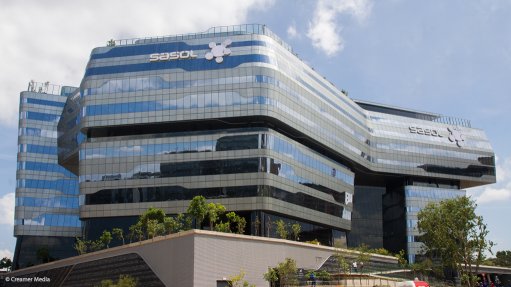
Greenpeace Africa challenges Sasol to raise its ambitions beyond profit and towards justice. Tomorrow, according to Sasol, it will release its emissions reduction roadmap to 2050 at its Capital Markets Day. It also intends to update the media and stakeholders about its longer-term strategy and sustainability ambitions.
South Africa was recently highlighted as having the worst unemployment rate in the world. Sasol's motivations must be challenged in this context. It is clear that turning towards renewable energy is the best and most immediate solution to South Africa's nexus of problems, yet Sasol has thus far neglected to invest in the industry, favouring profit-driven options instead.
Greenpeace Africa Climate and Energy Campaigner Thandile Chinyavanhu said:
"In the context of South Africa's unemployment crisis, we must ask Sasol why it does not create job opportunities now by pursuing renewable energy, when the need is so immediate. That is a question for the whole fossil fuel industry. Sasol is not the great innovator that it wants South Africans to believe it is. Investing in renewable energy while the government drags its feet would be the true innovation."
According to the Institute for Sustainable Futures, an ambitious energy transition scenario in line with the Paris Agreement’s 1.5°C target, is projected to generate about 60% more energy-sector jobs globally. This would mean around 48 million jobs created in the 1.5°C scenario compared with around 30 million jobs in the 5°C scenario. Greenpeace Africa's own research has found that, across Africa, a shift to renewable energy will create 4.7 million decent jobs. Plant and machine operators and assemblers would see the largest job increase – over 300% – with electricians and labourers close behind (more than 200%).
"Investors need to know that buying into Sasol's current business model is buying into false climate solutions. No amount of imaginary future profits for the company will make up for the impacts they have already had on the climate. They need to get on the right side of history and provide real solutions for South African youth, lest they contribute to raising another forgotten generation of South Africans." Chinyavanhu continued.
Sasol's coal-to-liquid plant in Secunda is the largest point-source of CO2 emissions on the planet, and it has played a significant role in driving the climate crisis. Its operations have also contributed to South Africa being identified as a global SO2 pollution hotspot. Its pollution has also been enabled by the Department of Forestry, Fisheries, and the Environment, who cited the financial costs to companies like Sasol as motivation for weakening the Minimum Emissions Standards for SO2, the health impacts of which are well known. [1]
Issued by Greenpeace Africa Communications Officer Chris Vlavianos